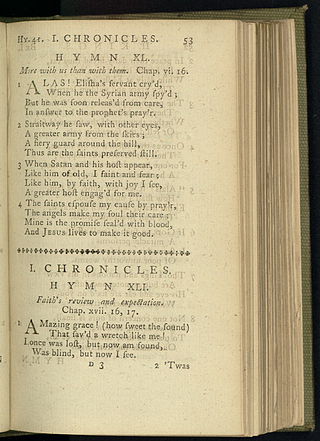
"Amazing Grace" is a Christian hymn published in 1779, written in 1772 by English Anglican clergyman and poet John Newton (1725–1807). It is an immensely popular hymn, particularly in the United States, where it is used for both religious and secular purposes.
Spirituals is a genre of Christian music that is associated with African Americans, which merged varied African cultural influences with the experiences of being held in bondage in slavery, at first during the transatlantic slave trade and for centuries afterwards, through the domestic slave trade. Spirituals encompass the "sing songs", work songs, and plantation songs that evolved into the blues and gospel songs in church. In the nineteenth century, the word "spirituals" referred to all these subcategories of folk songs. While they were often rooted in biblical stories, they also described the extreme hardships endured by African Americans who were enslaved from the 17th century until the 1860s, the emancipation altering mainly the nature of slavery for many. Many new derivative music genres such as the blues emerged from the spirituals songcraft.

A hymnal or hymnary is a collection of hymns, usually in the form of a book, called a hymnbook. They are used in congregational singing. A hymnal may contain only hymn texts ; written melodies are extra, and more recently harmony parts have also been provided.
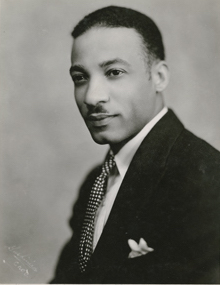
William Levi Dawson was an American composer, choir director, professor, and musicologist.
John Wesley Work III was an American composer, educator, choral director, musicologist and scholar of African-American folklore and music.
John Henry Maunder was an English composer and organist best known for his cantata "Olivet to Calvary".
"Lord of the Dance" is a hymn written by English songwriter Sydney Carter in 1963. The melody is from the American Shaker song "Simple Gifts". The hymn is widely performed in English-speaking congregations and assemblies.
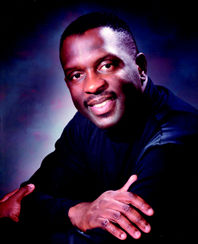
Moses George Hogan was an American composer and arranger of choral music. He was best known for his settings of spirituals. Hogan was a pianist, conductor, and arranger of international renown. His works are celebrated and performed by high school, college, church, community, and professional choirs today. Over his lifetime, he published 88 arrangements for voice, eight of which were solo pieces.
"Go Tell It on the Mountain" is an African-American spiritual song and Christmas carol which was likely derived from the oral tradition, but was originally published by John Wesley Work Jr., although there is some debate over whether he was actually the first to write it. It has been sung and recorded by many gospel and secular performers.
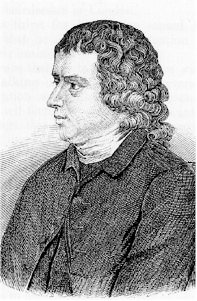
"Come Thou Fount of Every Blessing" is a Christian hymn written by the pastor and hymnodist Robert Robinson, who penned the words in the year 1758 at the age of 22.
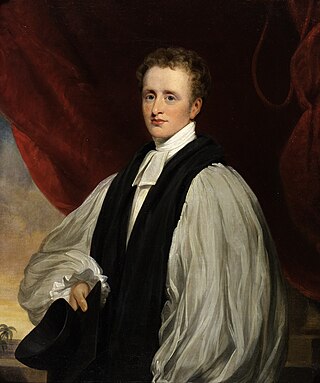
"Holy, Holy, Holy! Lord God Almighty!" is a Christian hymn written by the Anglican bishop Reginald Heber (1783–1826).

William James Kirkpatrick was an Irish-born American hymnwriter. He partnered with John R. Sweney to produce and publish over 1,000 gospel hymn songs and over sixty hymnal books.
"Gospel Plow" is a traditional African American spiritual. It is listed in the Roud Folk Song Index, number 10075. The title is biblical, based on Luke 9:62.
"There Is A Balm in Gilead" is a traditional African American spiritual. The date of composition is unclear, though the song dates at least to the 19th century. A version of the refrain can be found in Washington Glass's 1854 hymn "The Sinner's Cure". The Clark Sisters recorded a version of Balm In Gilead in 1986.

James McGranahan was a nineteenth-century American musician and composer, most known for his various hymns. He was born 4 July 1840, in West Fallowfield or Adamsville, Pennsylvania, and died 9 July 1907 at his home in Kinsman, Ohio.
"Good Shepherd" is a traditional song, best known as recorded by Jefferson Airplane on their 1969 album Volunteers. It was arranged and sung by the group's lead guitarist Jorma Kaukonen, who described their interpretation of it as psychedelic folk-rock.

Canaan Hymns or Songs of Canaan is a collection of Chinese hymns composed by Lü Xiaomin, a Christian convert peasant woman with no musical education, beginning in 1990. Lü's theological background is in Pentecostalism and the local churches movement, and the hymns reflect themes of Christology, pneumatology and eschatology against the backdrop of Chinese political realities.
"Let us break bread together" is a traditional Christian hymn. Its melody is searching, simple, major key, and has simple lyrics.









